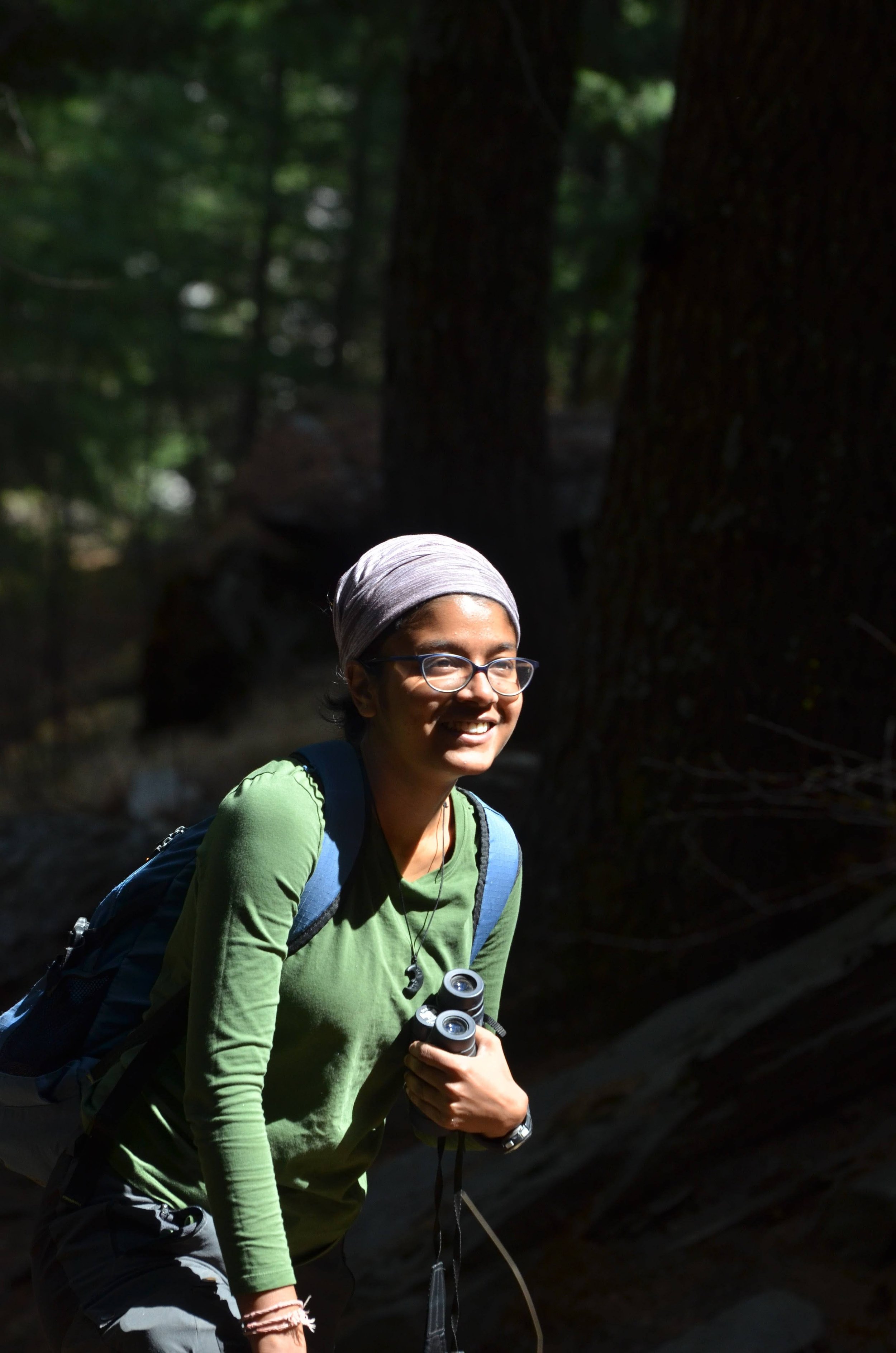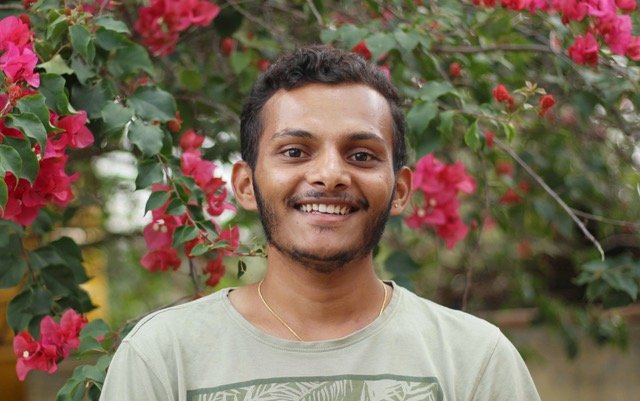Inlaks-RSF Conservation Interns 2022: Shreya Ray and Dhanush Shetty
The Inlaks-RSF Conservation Interns for 2022 are Shreya Ray and Dhanush Shetty.
Shreya will be studying local ecological knowledge (LEK) and approaches to use LEK to monitor wildlife populations in human-dominated landscapes under the guidance of Dr. Egil Droge at the Wildlife Conservation Research Unit at Oxford University.
Dhanush will be working towards understanding human-elephant coexistence at Colorado State University with Dr. George Wittemyer's research group.
Shreya Ray
Hailing from the always hustling, bustling city of Kolkata, Shreya Ray still remembers the first time she visited the Kaziranga National Park as a child. Apart from being in sheer awe at the diversity of birds and animals there, she was also curious about how different groups of animals seemed to occur in dense forests, open meadows, marshes and water.
Driven by this curiosity to understand the animal world, she pursued a bachelor's in Zoology, followed by a specialised master's in Ecology and Environmental Sciences. Shreya has explored various areas of animal ecology in different taxa to build a holistic understanding of terrestrial ecosystems. Following her master's, she worked on mammals in the Melghat Tiger Reserve. Along with studying the large carnivores and the herbivores, she had an individual goal to understand the ecology of honey badgers. This led to her interactions with local people giving her a new perspective regarding people's perception of animals present in the forests and how this is related to their response to wildlife conservation measures. Shreya’s newfound interest in studying mammals in human-dominated landscapes took her to the agroforests of North Bengal. Here, she witnessed diverse species of herbivores and carnivores using these landscapes and listened to local people's encounters with them. Destruction of primary forest habitats is one of the greatest threats to wild species in the 21st century. Most ecologists agree that human-wildlife coexistence is the only way to the future of wildlife conservation in human-dominated landscapes.
Shreya envisions that sensitisation of local communities to wildlife via active involvement in wildlife monitoring can help bridge human-wildlife relations. With the present grant, she will explore ways to study local ecological knowledge among people and if this can be used as a supplementary cost-effective way to estimate wildlife populations in human-dominated landscapes under the guidance of Dr. Egil Droge at the Wildlife Conservation Research Unit at Oxford University. This opportunity will also help her grow as a conservation ecologist to learn approaches to successful conservation efforts resulting in human-wildlife coexistence.
Dhanush Shetty
Dhanush Shetty is currently pursuing his doctoral studies at the Centre for Wildlife Studies, Bengaluru. He shall be working on understanding wild elephants in human-dominated landscapes.
He has an undergraduate degree in Agricultural Biotechnology from the University of Agricultural Sciences, Bengaluru and a post-graduate degree in Wildlife & Management from Kuvempu University, Shivamogga.
Born in the southern Western Ghats and raised in the Deccan Plateau, he has always been curious about the mysteries of nature. He has been inspired by and aspired to work with people who strive to preserve endangered species, especially elephants. He is no stranger to these gentle giants. Ever since he was a child, he would be fascinated by them at temples, zoological parks and yearly Dasara processions in Mysuru. During his long school vacations, he would visit his grandparents in Hassan, a district of Karnataka prone to human-elephant conflict.
It is these experiences that drive him to understand the core factors that drive human-elephant conflict and bring about holistic, harmonious mitigation measures, which in turn would promote the coexistence of both humans and elephants sharing the same land.
After his undergraduate degree he has worked on several projects that address human-elephant conflict. He has worked as a research fellow at the University of Agricultural Sciences, Bengaluru and during his master’s programme, which was funded by Vision Group of Science and Technology (VGST), Government of Karnataka. He also has a policy-level understanding of conflict mitigation from an internship he did at Deutsche Zusammenarbeit (German cooperation/GIZ) and an understanding of Elephants acoustics from an internship with the CWS-RFCx (Rainforest Connection) collaborative project.
The increase of human-driven pressures on natural systems are causing major ecological changes from the alteration of species life history strategies to, in the worst case, population collapse. The long-term impacts of these changes on species survival and ecosystem functioning are largely unknown.
Dhanush will be joining Dr. George Wittemyer's research group at the Colorado State University, Fort Collins. The group is striving to provide a greater understanding of the factors influencing ecosystems and how species respond to these influences. The ultimate aim of the research is to provide empirical-based information and strategies to address the many conservation challenges we face today. He will also learn to actively translate these research outputs into policy and conservation actions. He believes the learnings from this internship can be applied in the Indian context as well.
He has a passion for #SciComm, in particular communicating science through digital art and using technology for wildlife conservation. To know more visit www.dhanushshetty.com








